Cooperation introduction
12 tháng 10, 2017INTERNATIONAL COOPERATION STRATEGY - VIETNAM NATIONAL UNIVERSITY OF FORESTRY IN THE PERIOD OF 2017 - 2020, VISION TO 2030
Chapter 1
MISSION, VISION, AND DEVELOPMENT OBJECTIVES
1.1. Introduction to Vietnam National University of Forestry
1.1.1. Tasks
Vietnam National University of Forestry was established on 19 August 1964 according to Decision No.127/CP dated 19/08/1964 of the Government Council with the main tasks
- To train scientific and technical staff, managers who have undergraduate and postgraduate degrees in forestry.
- To foster for staff at all levels of the forest sector on the basic principles of science and technology and professional management of the sector.
- Scientific research and technology transfer in order to contribute to evaluate the experience and building professional theory and techniques of the forestry sector.
1.1.2. History of construction and development
In the period of 1964-1984: The University's head office was located in Dong Trieu, Quang Ninh Province. In this period, the University implemented the task of university-level personnel training for the forestry sector, it had 03 faculties, 04 training majors in the forestry sector.
From 1984 until now, the University's head office has been located in Xuan Mai town, Chuong My, Hanoi. In this period, the university has implemented the development strategy of the multidisciplinary, multi-level, and multi-sector university to meet human needs and deal with scientific and technological tasks of the country.
In 2008, the University established the Second campus, which is located in Trang Bom Town, Trang Bom District, Dong Nai province, on basis of merger and upgrade of Forestry High School No. 2 of the Ministry of Agriculture and Rural Development to meet the personnel training need in the forestry sector for the southern provinces. In 2016, the Ministry of Education and Training signed a Decision on establishing the Vietnam National University of Forestry Southern Campus.
1.1.3. Outstanding achievement
Looking back at the history of over 50 years of development, the outstanding achievements of VNUF are as follows:
About training and education: VNUF is at the forefront of innovation of goals, programs, curriculum, teaching methods, and scaling up professional development. As of December 2016, VNUF has trained 40,000 engineers and bachelor's, more than 4,000 MSc and 100 PhDs. The officers trained by VFU make up an important part of the total number working in the scientific and technical management of the forest sector. More than 200 officers, who have been educated by VFU, are holding key leadership positions in state agencies. The VNUF has highly qualified teachers, good foreign languages, many people are on the list of lecturers of prestigious universities in the world. The officers trained by VNUF make up an important part of the total number working in the scientific and technical management of the forest sector. More than 400 engineers and bachelors, MSc and PhDs for Laos and Cambodia. In addition, the VNUF trained pupils from ethnic minorities grade 10 to 12, providing resources for staff in rural areas
- About scientific and technology development: Vietnam National University of Forestry become the leading University of forestry in Vietnam, a center for scientific center for forestry, the environment, wood technology, natural resource management, biotechnology, forestry policy, climate change, Prevention and Mitigation of Natural Disasters, Forest Fire Prevention, GIS, biodiversity. The VNUF has a system of laboratories, seedling garden, and modern research centers to meet the research and training requirements. The scientific staff has the ability to cope with the realization of projects in the forestry sector and has the capacity to integrate with other countries in the region and internationally.
- About International cooperation: International cooperation has always been key priorities for autonomy, integration, and has created a position, brand for VNUF. The VNUF has established cooperation with more than 60 universities, organizations, and research institutes in the world. The school has been received many international experts and volunteers to work at the VNUF. Lecturers are well trained abroad, they participate in national forums, conferences, international workshops on forestry and sustainable development. Lecturers who studied abroad make key positions at the school. The number of lecturers working with foreign experts reached 30% in 2010, increasing to 70% in 2016, the rest can read, translate or communicate in at least 01 foreign languages. The number of lecturers remaining can read the book, translate or communicate with at least 01 foreign language
The school has successfully implemented many international projects and contribute to the VNUF's capacity and position. Every year, VNUF organizes more than 20 academic exchanges with foreign experts, welcomes and works with over 50 international delegations with more than 150 visitors from countries and international organizations. At the same time, VNUF supports 100 turns of lecturers to attend seminars, conferences, training cooperation, and research with foreign partners.
- About construction of infrastructure and facilities: In particular, from 1984 until today, VNUF has built a spacious campus upon a bald hilly area to meet the requirements for high-quality training and scientific research of officers and students of VNUF. VNUF has planted an experimental forest comprising an area of over 150 hectares with more than 200 species of native plants brought from throughout the country. It is not only serving as the study and practice area for lecturers and students of VNUF, it also provides an outdoor lab that is very valuable for scientific research activities in the future. We are proud to say that, there are only a few universities having such beautiful and fresh scenery as VNUFhas 18 hectares on campus 2, VNUF meets the requirements of international standards.
- About staff organization: VNUF has Staff planning strategy. While beginning with 128 employees at its opening, VFU now has a staff of 1,008 including contracted personnel (with 575 lecturers, 26 professors and associate professors, 117 Ph.D., 339 MSc, and more than 100 staffs are studying abroad. Every year there are 8-10 professors, associate professors, 20-30 PhDs recognized.
Over 53 years of construction and development, VNUF was honored for its outstanding contributions to the human resource development of the country. The school has been awarded many noble titles by the Party and State.
1.2. Mission, vision, and development objectives
1.2.1. Mission
Becoming one of the leading universities for the training of highly qualified personnel to meet the development requirements for Forestry and Rural Development; considered as a prestigious science and technology center of forestry, natural resources, and environment, prevention and mitigation of natural disasters, contributing to sustainable environmental, social, and economic development of the country, particularly in rural areas and mountainous midlands.
1.2.2. Vision
Vietnam National University of Forestry becomes a center for scientific center for forestry, the environment, wood technology, natural resource management, biotechnology, forestry policy, climate change, Prevention and Mitigation of Natural Disasters
1.2.3. The development objectives:
Vietnam National University of Forestry is to be further promoted and enhanced in order to become the leading University of forestry in Vietnam and region on human resource training, and scientific research with high prestige and equal relations with universities and research institutes in the country
Chapter 2
CURRENT SITUATION OF INTERNATIONAL COOPERATION ACTIVITIES
2.1. Domestic and International Context
International cooperation activities of VNUF has taken place in the changing international context, especially globalization of economics - culture takes place quickly, development cooperation and strong competition. There are large global issues and should be cooperation among countries to address as: ecological environment, sustainable development, biodiversity… At the same time, the world trend is universities are expanding autonomy, self-responsibility. So, reforming the form, content of the program and training methods is an urgent requirement for universities to survive and develop in the context of increasingly intense cooperation and competition
In the domestic context, the government has considered education and training together with science and technology as the top national policy, with the policy of radical and comprehensive reform of higher education in Vietnam has created new strategy for universities with a vision to 2020.
2.2. Current situation of international cooperation activities.
International cooperation of Vietnam National University of Forestry in recent years has experienced fundamental changes in which most of the forms of cooperation have turned into cooperation of mutual benefits. Besides, many universities and organizations make visits to exchange and establish a new relationship with the school; especially they want to exploit the strengths of the school in the field of forestry. Cooperation activities are continuing to be expanded and go into depth, and more international cooperation projects have been fully exploited.
In the process of accessing and implementing the international advanced training programs, a large proportion of teaching staff and management have had engaged conditions, having learned new teaching methods, and how to build an advanced training program of high quality, so the qualification of the teaching staff has been raised significantly. In addition, staff working in international cooperation has good qualifications, language proficiency, enthusiasm and efforts to identify research problems, being clever in understanding foreign partners, capable of promptly giving proposed topics and projects with good contents, in accordance with the conditions of the university
The university owns a plentiful source of international officers and teachers from countries like the US, Netherlands, Germany, Canada, Australia, France, Russia, Japan, Korea, China etc. Facilities, classrooms, school equipment are enhanced from foreign funds, the school's reputation in the international partners has been raised significantly, opportunities for training, scientific research and transference with universities, the education and training organizations in the world and in the region have been increasing.
The results of several international cooperation activities of the university in 2012-2016 are included as follows:
The university has improved and expanded partnerships with over 65 universities and training institutions and research institutes in nations such as Germany, USA, Netherlands, Australia, Japan, Finland, etc., domestic and foreign organizations as FAO, DAAD, UNEP, World Bank, WWF, JICA, GIZ, etc., undoubtedly this can help contribute to confirm the position of the university in the country and in the world through the domestic and international programs, projects, forums, conferences and conferences;
International cooperation of the university has contributed to capacity building of the staff, lecturers and students in the school. Every year about 100 turns for students and staff attend training courses and seminars in foreign countries;
Many conferences, international conferences have been successfully organized with the participation of hundreds of national and international experts, which highlights the workshop on "The link between research, training and development of production, serving forestry restructures in Vietnam "on the occasion of the 50th anniversary of the university establishment and the workshop on "Climate change and REDD+ implementation in Vietnam" on the occasion of the 60th anniversary of forestry faculty establishment
Collaboration with the University of Colorado - the United States with advanced training programs of natural resource management has been effective; Dresden University and the University of Gottingen (Germany) have developed a master training program of tropical forestry in English with the support of the DAAD;
International cooperation activities have initially established international training environment with the participation of dozens of experts and volunteers to work, to teach, and to do research at the school;
The university has successfully implemented a number of international projects including cooperation with KNCF Fund (Japan) in the establishment of training centers for nature conservation for students and boarding ethnic pupils; cooperation with the programs and projects such as the UN-REDD, Vietnam Forests, and Deltas Program (VFD), Emission Reduction Program in the Asian Forests (LEAF) in developing training programs and improving resources for faculty members in mitigation and adaptation to climate change; coordination with Jülich Institute (Germany) in research and application of frankincense production technology in a sustainable way;
Constructing and finishing the English language website to promote the university brand with other universities and organizations domestically and abroad.
2.3. Strength, weakness, opportunity and challenge of international cooperation activities
2.3.1. Strength
To active integration into the international economy in the context of globalization, especially Viet Nam has been a member of the WTO, to participate in quickly and efficiently in the System of the international division of labor, use all resources for development purposes. Therefore, we have the opportunity to speed up the process of adjusting the economic structure, and to push up the industrialization and modernization of Vietnam.
International integration, including international economic integration, also to boost international cultural exchanges and knowledge, enhance understanding and friendship between peoples. Thereby, human knowledge is crystallized in the invented condensed, scientific inventions, techniques, technology ... Like other countries in the world, Vietnam's international integration provides an opportunity for us to share the benefits of globalization. At the same time, it contributes to the development of international cooperation in many fields.
The VNUF has well-trained postgraduate scientists in the universities of advanced countries in the world. Many lecturers of VNUF teach at reputable universities around the world. They are a key staff of the VNUF in the field of expertise and management. They make important contributions to the international cooperation of the school
International co-operation has received the attention of the Party Committee, the VNUF's leadership. Besides, international co-operation activities supported the training activities
The school established and developed a long-term relationship with several universities and research institutes in the world and effectively utilized the resources of international organizations for training and research activities. and improve the capacity of staff and lecturers.
2.3.2. Weakness
- First, the international cooperation has not accumulated and promoted all the capabilities of the staff, lecturers who have a good command of foreign languages and who are trained in foreign countries; The involvement of the staff, teachers, and professional units in the international cooperation as an individual
- There is no mechanism for staff, lecturer, scientists to participate in international cooperation activities, especially in research, transfer, and implementation of international projects from departments and institutes of VNUF. Faculties and institutes do not have staff who have responsibility for international cooperation activities
- VNUF's reputation has not really created the impression with the organizations and universities in the region and in the world because international publications are limited, English website is not enough
2.3.3. Opportunity
- At present, there are many opportunities for international cooperation activities, especially in the areas of natural resource management, sustainable forest management and enhance the added value of the forest, REDD+ implementation, biodiversity conservation, environmental protection, green growth, renewable fuels. These are the strengths of VNUF with highly trained scientists who use good foreign languages
- There is an increasing demand for English language training for students in forestry, natural resource management, biotechnology, and wood processing. This is an opportunity for the VNUF to expand and develop high-quality training programs with cost appropriate to the abilities of the majority of learners.
- More and more universities and international organizations want to seek partners in order to implement projects in Vietnam such as forest and environment, sustainable forest management and forest certification, wood processing, application of high technology in agriculture - forestry ... This is an opportunity for VNUF to develop international program projects, participate in the research market and technology transfer.
2.3.4. Challenge
- Vietnam is a developing country with low economic levels, and state management is still weak and inadequate. Therefore, Vietnam will face great difficulties in both domestic and international competition, with more competition on a deeper and wider scale. The field of human resource training is also included in this rule.
- Competition in research cooperation activities for both training and transferring research has become difficult when domestic sources of funding become less and less.
- The expansion and development of high-quality training programs associated with international partners of the VNUF will be difficult if there is no good enrollment source.
Chapter 3
INTERNATIONAL COOPERATION STRATEGY
3.1. The basis of Strategy development
VNUF 's International Cooperation Strategy is built on the following basis:
1. Law No. 08/2012/QH13 dated June 18, 2012;
2. Decision No. 70/2014/QĐ-TTg dated December 10, 2014, promulgating the university charter ;
3. Decision No. 163/QD-TTg dated 25/01/2016 of the Prime Minister approve the Plan for Training and Retraining Officials in the 2016-2025 Period
4. Decision No. 759/QD-TTg dated April 19, 2011 of the Prime Minister approve the Vietnam Human Resources Development Strategy 2011-2020 period;
5. Decision No. 711/QD-TTg dated June 13, 2012 of the Prime Minister of Governmentapproving the 2011-2020 education development strategy
6.Resolution No.14/2005/NQ-CP of November 2, 2015 on fundamental and comprehensive renewal of Vietnam's higher education in the 2006-2020 period;
7. Resolution of the 10th Party Congress and Vietnam's socio-economic development strategy and forestry sector development strategy up to 2020;
8. Decision No. 3485/QD-BNN-TCCB dated 14 November 2006 on Development Strategy of Vietnam National University of Forestry for the 2006-2020 period was approved by the Minister of Agriculture and Rural Development;
9. Decision No. 2065 QĐ-BNN-TCCB dated 11/9/2013 of the Minister of Agriculture and Rural Development on adjusting and supplementing the Development Strategy of Vietnam National University of Forestry in the 2006-2020 period.s
10. Decision No. 2699/QD-BNN-TCCB dated 30/6/2016 of the Minister of Agriculture and Rural Development regulating the functions, tasks, and organizational structure of the Vietnam National University of Forestry;
11. Decision No. 2169/DHLN-TCCB dated 26/7/2016 of the President of the Vietnam National University of Forestry on the establishment of the International Cooperation Department under the Vietnam National University of Forestry;
12. Decision No. 5420 / QD-BNN-TCCB dated 27/12/2016 of the Minister of Agriculture and Rural Development promulgating the Regulation on organization and operation of the Vietnam National University of Forestry
3.2. Goals of the strategy
- Building and developing Vietnam National University of Forestry for being one prestigious university domestically and abroad through international cooperation, integration of equality, fairness and access to advanced educational standards in the world
- Enhancing the quality of human resources for the region and the world; creating an international environment and an appropriate mechanism to develop effective advanced training programs with high-quality and international projects; increasing the exchange of lecturers and students with foreign universities; strengthening the international publishing, etc. Diversify partnerships, focusing on key partners in each strategic period.
3.3. Strategy
3.3.1. Promoting capacity of staff and students
- Enhancing the capacity of staff and students through collaborative foreign and domestic programs; participating and effectively contributing at conferences nationally and abroad; having prestige and positive impacts on society; participating in solving important problems of the sector, interdisciplinary, national and international matters, such as restructuring the forest sector, climate change, sustainable development, new rural development, conservation of biodiversity.vv;
- Improving language skills for staff, faculty through increasing the number of faculty, researchers who are offered the chance to study postgraduate programs abroad, to participate in short-term training courses, international meetings and conferences;
- Promoting foreign language requirements and works published in English for lecturers in the regulations on selection, reward and material incentives;
- Provoking language ability used by students after graduation to create an environment for use of language informal learning activities, participation in international scientific exams, English clubs, environmental clubs and hobby groups of students.
3.3.2. Developing international training cooperation with foreign partners
- Internationalizing education in the context of increasingly deep and broad international integration; Continuing to promote innovative training programs in line with the trend of integration and internationalization; increasing the number of training programs in foreign languages, and joint training at all levels of training. Striving to 2020, each department and each professional institutes must perform at least 01 undergraduate or postgraduate training program affiliated with universities around the world by using English in teaching;
- Attracting quantities of international students, prioritizing students from Southeast Asia and Africa to study at the university through finding student supporting scholarships; expanding the audience of international students from developing countries under the exchange or internship programs;
- Promoting the development of collaborative training programs with universities in the region and in the world with training orientation based on the research and transfer;
- Further facilitating the exchange of lecturers and students to foreign universities, particularly the universities that have signed cooperation memorandum (MoU).
3.3.3 Strengthening scientific research and transfer of technology with international partners
- Successfully undertaking projects and research programs signed with universities and international organizations, positively activating the opening of new projects;
- Implementing deepened cooperation with international organizations for more resources for getting programs and projects worked in the areas of the school's strengths and get great international attention such as climate change, natural resource management, forest products processing technology, biotechnology in agriculture and forestry, economics and policies of agricultural, forestry and rural development;
- Assigning tasks and supporting lecturers, scientists and researchers to participate in programs, projects and research activities with foreign elements, contributing to solving the regional and international issues.
3.3.4. Other activities
- Strengthening the status of the schools from the international cooperation activities through financial contributions and the success of the programs /projects with international partners;
- Modernizing infrastructure for teaching and research, associated with the practice, practical training and employment base in the direction of gradually approaching the international level;
- Innovating mechanism of international cooperation towards the initiative, autonomy and equal direction of departments/ professional subjects
- Establishing appropriate financial mechanisms to attract the participation of units/departments and scientists.
- Innovating mechanism of international cooperation towards the initiative, autonomy and equal direction of departments/ professional subjects
- Establishing appropriate financial mechanisms to attract the participation of units/departments and scientists.
3.4. Specific solutions
3.4.1. Solutions to improve language skills for staff, faculty and students
- Developing faculty is one of the decisive factors that influence the quality of teaching and learning and the development of the higher education system for international integration. Therefore, improving the quality and quantity of qualified teachers of foreign languages is undertaken through (1 Long-term training, Full-time abroad (Ph.D., MSc) (2) Participating in short courses, conferences, international conferences; (3) Attracting many foreign professionals and volunteers to work in the university to enhance the foreign language skills for staff and faculty;
- Providing information and motivation to staff and faculty to help them have autonomy and responsibility to take part in solving the sector, interdisciplinary, national and international significant issues; participating in domestic and international conferences, workshops, forums
- Strengthening and developing the exchange program of lecturers, graduate students, trainees and voluntary teacher in the orientation of faculties/departments about making plans for the reception and the ability to contribute of foreign lecturers, graduate students, trainees to visit for exchange, to work in the department/subjects, enhancing searching, and developing teaching staff exchange program by seeking information and put relations with research institutes, universities, diplomatic organizations on the basis of reference to the orientation of the reception in the departments and units;
- In addition, the curriculum in English that has gradually been applied in teaching some subjects or some chapters/sections in a subject for Major studies taught in Vietnamese;
- Supporting student clubs to work more efficient by connecting with experts and international volunteers to work at the school, creating environment-wide communication in English for students in the school;
- Actively guiding, searching and supporting students to participate in student exchange programs, summer semesters of universities in the world, the international science exams for students.
3.4.2. Solutions to develop training cooperation with international partners
- Developing advanced training programs, high-quality training with prestigious universities in the world;
- Identifying strategic and potential partners for cooperation to develop the curriculum of the high quality of undergraduate and postgraduate programs;
- Promoting research activities and training, especially the training program which is attracting students, foreign students, and the directions of collaboration capabilities of the university and units through various forms such as advertising on the website, flyers, books/tapes / CDs, etc.
- Selecting the training program for international cooperation on issues related to regional and global matters including environmental protection, natural resource management, coping with climate change, rural development; biotechnology;
- Developing programs to improve foreign language skills for staff, faculty and students in the field of the foreign languages such as 2020 Foreign Language Scheme by the Ministry of Education and Training.
3.4.3. Solutions on international cooperation in scientific research and technology transfer
- Making a plan to strengthen the capacity of international cooperation for the units in the field of foreign language skills, project proposal writing, building a professional department to support the preparation and implementation of projects, supervision and monitoring of the project;
- Regularly organizing and participating in international scientific conferences, and promoting academic exchange programs, student exchange programs to expand the relationship, finding partners towards the creation of a network of comprehensive and efficient cooperation;
- Strengthening the signing and implementation of cooperation agreements with universities, international organizations, improving the quality of international cooperation in all phases and taking advantage of the support from organizations, foreign agencies to develop training and scientific research of the school;
- Increasing the number of publications, articles published in international journals written by the university's staff, lecturers and students through the implementation of projects/programs of cooperation with foreign partners, making good use of experts and international volunteers working in the university.
3.4.4. Other solutions
- Clarifying orientations and priorities in international cooperation activities of the school and the units, promoting multilateral cooperation with international partners nationally and abroad;
- Planning for modernizing facilities – technology for advanced training programs, high-quality programs; building and modernizing laboratories, research facilities for teaching, lecture halls, equipment for learning foreign languages, meeting rooms, workshops and spaces for activities for students) that meet the regional standard and international standards in the training units;
- Modernizing the infrastructure of information technology, strengthening computer systems, gradually improving internet system up to international standards, meeting the academic and research requirements of staff and students, the professionals and volunteers to work at the school;
- Organing an annual conference for donors, strategic international partners in order to expand the university's international relations, understanding and meeting the needs, abilities and interests of donors, and international partners in training activities, scientific research and transfer, building and undertaking international cooperation projects;
- Developing financial mechanisms to encourage units and scientists to actively participate in international cooperation activities of the units in the university;
- Strengthening the establishment of staff working in international cooperation in departments/institutes/centers, ensuring that each department/institute/center has at least 01 assistant of international cooperation with scientific expertise and proficient ability in at least 01 languages, preferably English;
- Focusing on training specialized knowledge of international relations for officials working in international cooperation at the university level and departmental / institute level.
Chapter 4: ROADMAP OF IMPLEMENTATION
4.1. The period 2017-2020
4.1.1. Enhancing capacity of faculty members, staff and students
- Strengthening the cooperation among international universities, research institutes in the world for exchange lecturers and students. Each year, the university will have at least 30 lecturers/students are exchanged with international universities;
- Strengthening of training and self-training in foreign languages; Improving language skills for staff, faculty in professional works;
- Encouraging and creating conditions for officials, lecturers and students to attend international conferences, seminars and training courses;
- Building –up an international environment to attract experts, scientists, students to work and study at the University. Striving for 50 in ternational specialists, students and volunteers to work and study at the University every year.
- Promoting cooperation for training abroad. The university strives to have at least 60 faculty members and students are trained abroad;
- Encourage and support scientists and lecturers to publish articles in prestigious international journals. The university strives to have at least 30 articles published each year in international magazines/proceedings of international seminars, especially those with SCI, SCIE...
4.2.2. Development of advanced programs and high-quality programs
- By 2020, all faculties and colleges will have at least one advanced or high-quality undergraduate training program taught in English;
- Strengthen the promotion of advanced training programs and high-quality undergraduate training programs in the region and the world. There are incentive schemes for students attending advanced, high-quality programs, especially for students from English-speaking countries and students with good academic performance;
- Continue to develop and expand the International Master Program on Tropical Forestry by seeking scholarship resources to attract more international students in addition to the DAAD grant;
- Seeking funding sources and promoting high-quality programs with the University of Colorado, Oregon ... of the United States, the University of British Columbia of Canada and the prestigious universities of the Netherlands, Australia, Germany, Japan and other developed countries;
4.2.3. Development of International Programs / Projects
- Setting up groups of experts, scientists with the same expertise and strength in foreign languages in the fields of the university's strength such as forest and environment management, climate change, sustainable forest management, biotechnology, wood processing technology, remote sensing technology and GIS, agricultural and rural development policies;
- Collaborate with universities and research institutes around the world to write proposals and implement international programs / projects. To strive to have at least 04 new programs / projects involving foreign elements every year at the University;
- Enhance the role of faculties, institutes and subjects in the opening of domestic and foreign programs / projects;
- Building capacity profiles of the univerity for international cooperation;
- Strengthen the cooperation, exchange and clearance of programs / projects from international organizations such as ADB, WB, JICA, UNDP, FAO, WWF, GIZ.
4.2. Vision to 2030
Until 2030 Vietnam National University of Forestry will become a center for counseling, training and implementation of international cooperation in the field of silviculture, forest products processing, coping with climate change, forestry economics, environmental resource management and rural development;
The university has at least 10 training programs in foreign languages (preferably in English); 60% of lecturers can teach in a foreign language, 100% of lecturers with doctoral degrees are capable of delivering lectures in a foreign language;
The university will be a training center of undergraduate and postgraduate programs for all the students in the region and the world in the field of tropical forestry and natural resource management; Centre for international student exchange for the conservation and development of forest resources, environment protection, coping with climate change, and disaster prevention;
The university has at least 10 works / international projects deployed every year.
Annually the university can attract about 30-50 professionals, students and international volunteers to work, to learn and to conduct research at the university.

 Email
Email 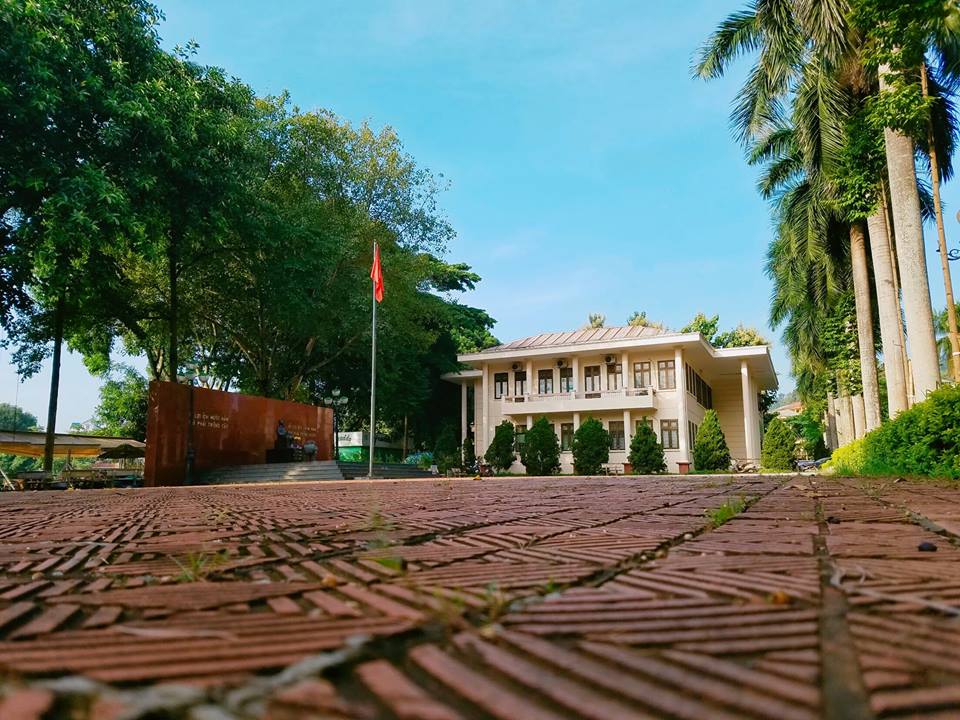
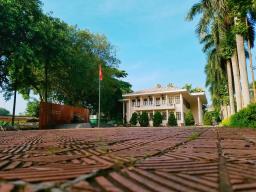
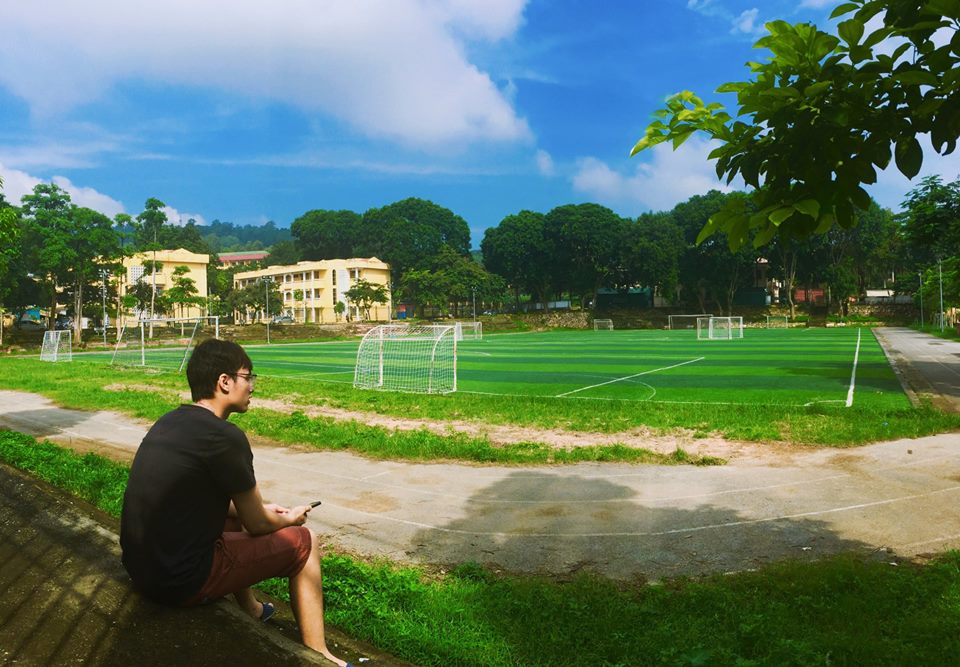
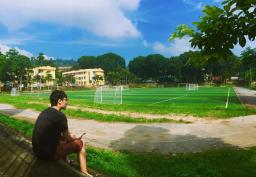
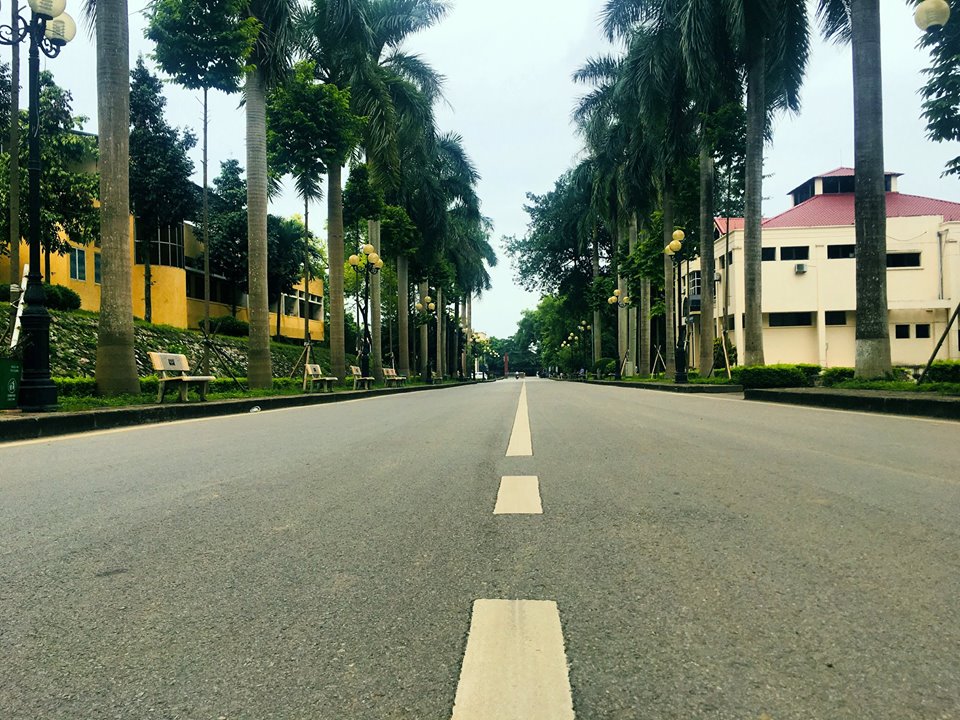
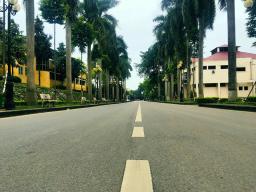
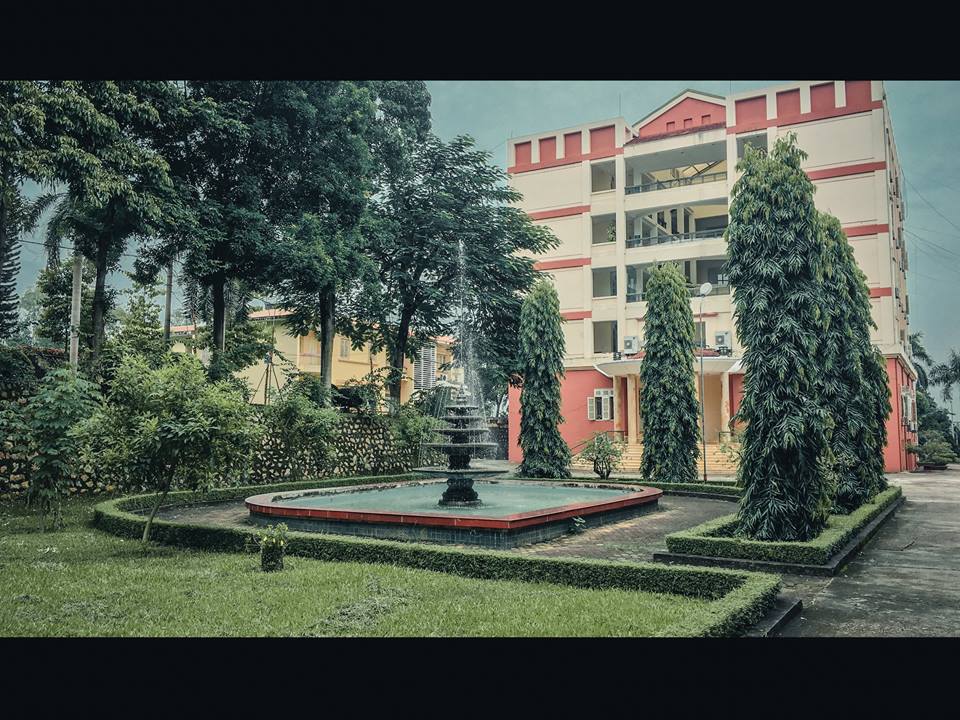
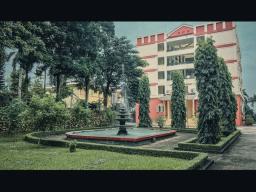


 IMP facebook
IMP facebook How to apply?
How to apply?